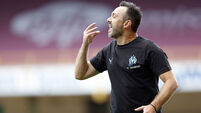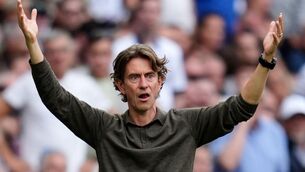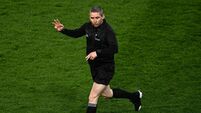The heart of the matter
“Sides that play football can always go quite far in tournaments,” said the Italy manager. “If it’s just down to results, perhaps you can get there for a while, but in terms of European Championships, if you want to do well, you have to be a good football side.”
Despite the brutal evidence of their Euro 2012 experience, Ireland are not a bad football side. But they are an ordinary one. And when they come up against something out of the ordinary, as they did against Spain, there can only be one result.














